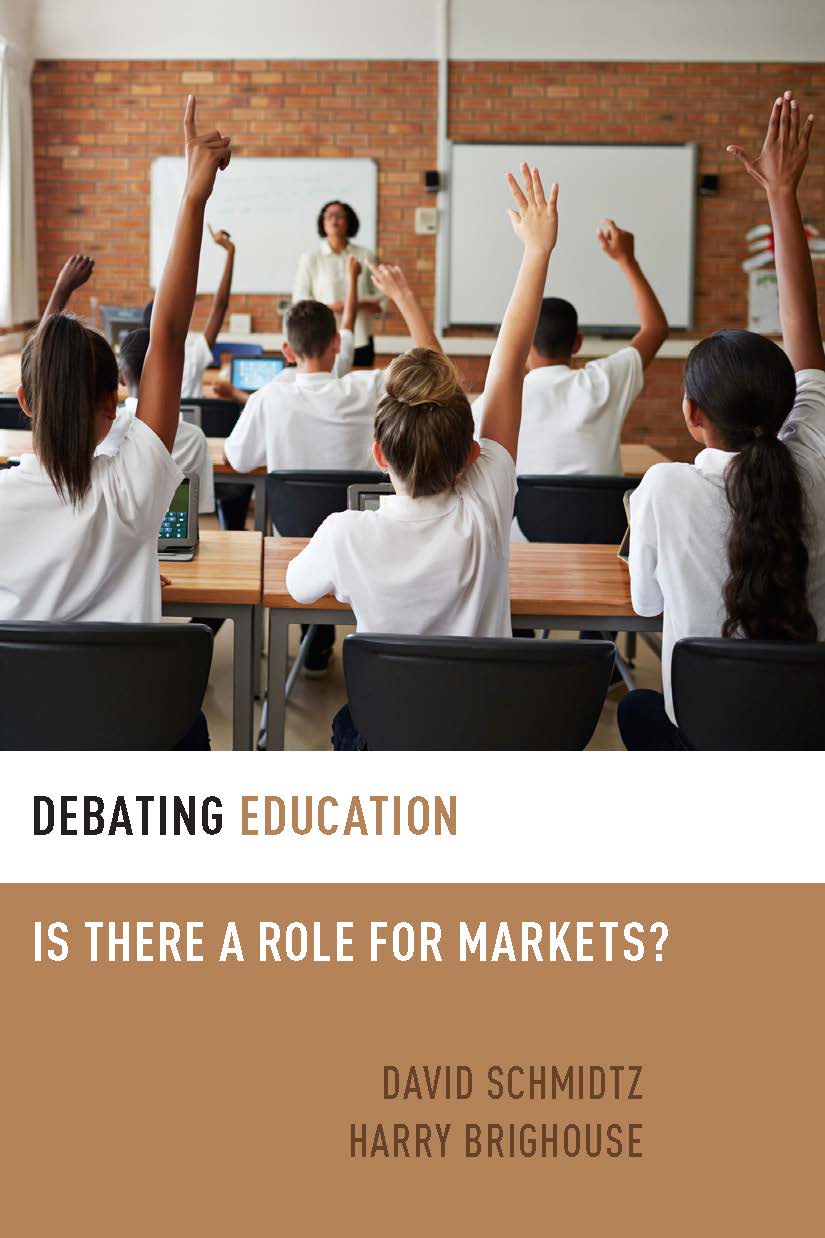
Debating Education puts two leading scholars in conversation with each other on the subject of education—specifically, what role, if any, markets should play in policy reform. Each advances nuanced arguments and responds to the other, presenting contrasting views on education as a public good. One author argues on behalf of a market-driven approach, making the case that educational opportunities do not need to be equal in order to be good. The ideal of education is not equally preparing students to win a race but maximally preparing each student to make a contribution. The other focuses on inequality, particularly the unequal distribution of rewards. The argument is that justice requires prioritizing the prospects of the bottom 30 percent of the population, whose life prospects are much worse than justice would demand, given the current wealth of society. The moral imperative of education should be to improve this group’s range of opportunities. This part of the book expresses serious skepticism that market mechanisms are capable of this task, due to imperfections in educational markets, a lack of appropriate regulations, political influence, and other systemic obstacles.

